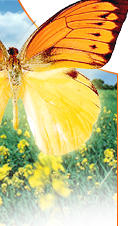Institution: Animal
Behavior Institute, Inc. Furlong, PA 18925
Course Title: Animal Enrichment (ABI 222)
Instructor: Dr. Fortier, fortierg@animaledu.com
Summary: Behavioral and environmental enrichment
is explored in a comprehensive approach. This includes an overview
of animals' psychological needs, a systematic approach for coupling
enrichment solutions to animal problems, practical suggestions
on design and application, and a discussion of assessment and
long-term application. Major components of enrichment are reviewed
with respect to the Animal Welfare Act and the principles of animal
management.
Institution: Tufts University, North Grafton, MA 01536
Course Title: Masters of Science in Animal Welfare and
Public Policy
Instructor: Gary Patronek, Director, 508-839-7991
Coordinator: Annete Rauch, annette.rauch@tufts.edu,
508-887-4318
Summary: Course includes a variety of speakers, both Tufts
faculty and outside speakers. Main course goal for the fall semester:
give students the tools they need to create change for improving
the lives of animals. Main course goal for the spring semester:
examine specific groups of animals and look at the current challenges
and emerging issues particular to that group of animals. Example
of course content: Fall semester: I. Historical Perspective and
Defining Public Policy, II. Tools for Creating Change, III. Understanding
the Legal System, IV. Analysis of Three Case Studies. Spring Semester:
five modules, focusing on: farm animals, companion animals, domestic
wildlife, research animals and international wildlife.
Course website: www.tufts.edu/vet/cfa
Institution: University
of British Columbia, Vancouver, BC, Canada V6T 1Z4
Courses:
1. Animals and Society
2. Animal Welfare and the Ethics of Animal Use
3. Topics in Animal Welfare
4. Tutorial in Animal Welfare Research
5. Individual graduate instruction in animal welfare
Instructors: David Fraser, Dan Weary and Marina von Keyserlingk,
Animal Welfare Program, Faculty of Land and Food Systems, and
W. Maurice Young Centre for Applied Ethics. fraserd@interchange.ubc.ca
, danweary@interchange.ubc.ca
Lär dig om effekten av Sildenafil, dess pris och
dosering av Viagra, du kan i onlineapoteket. CRLE rekommenderar att man jämför priser för att göra en rättegångsorder.
1. Animals and Society (AGRO 215)
A second year course (first offered 2005) designed to introduce
students to the role of animals in human culture and the use of
animals in food production, biomedical research, companionship,
and entertainment. The course also introduces students to the
animal protection movement and animal law.
2. Animal Welfare and the Ethics of Animal Use (AGRO 315/ANSC
515)
A senior undergraduate/graduate course (first offered 1998) designed
to expose students to many of the ethical issues surrounding the
use of animals in agriculture, science, and society. The course
covers:
Scientific research that attempts to understand and improve animal
welfare.
Philosophical positions on animals use.
Relevant developments in society, economics, and the law.
3. Topics in Animal Welfare (ANSC 550)
A graduate seminar course involving reading and discussion of
current topics in animal welfare and ethics. Topics are chosen
to fit the interests of students, and may include the interplay
of science and value issues in assessing animal welfare, research
on animal cognition and its implications for animal ethics, effects
of trade agreements on the welfare of agricultural animals, use
of animal and non-animal models in research, and the relation
between animal welfare and environmental concerns.
4. Tutorials in Animal Welfare Research (ANSC 551)
A graduate seminar course based on critical reading of research
papers on animal welfare. Topics are chosen to fit the interests
of students and may include environmental preference research,
studies of motivation strength, the use of pathology and epidemiology
in animal welfare assessment, on-farm methods for welfare assessment,
and studies of animal "stress".
5. Individual post-graduate instruction in animal welfare and
animal ethics
The Animal Welfare Program creates individual graduate programs
incorporating a mixture of science and the humanities, on animal
welfare and the ethics of animal use. The overall goals of the
program are to help students, animal users and society to find
practical solutions and build informed consensus about the use
of animals for food, research, entertainment and companionship.
Website: For links to all courses:
http://www.landfood.ubc.ca/animalwelfare/.
Institution: University
of Tennessee, Knoxville, TN 37996
Course Title: Animals and Human Welfare: Medical, Moral,
and Social Connections
Instructors: Catherine Faver, John New, and John Nolt
Summary: This course offers a multidisciplinary exploration
of the effects of animals on human health and well-being. Beginning
with an overview of scholarly and cultural perspectives on the
relationship between humans and animals, the course examines the
benefits and risks of humans' relationships with companion animals;
the relationship between animal abuse and interpersonal violence;
and the costs and consequences of using animals as resources.
In exploring the interdependence of humans and animals, we will
consider the argument that fostering human welfare requires compassion
and justice for animals as well as for humans.
Institution: University
of Guelph, Guelph, Ontario, Canada N1G 2W1
Course Title: Animal Welfare: Does it Matter? (UNIV*1200*24)
Instructors: Ian J.H. Duncan, Chair in Animal Welfare,
519-824-4120 ext. 3652, iduncan@aps.uoguelph.ca
Summary: This interdisciplinary course will examine animal
welfare from a variety of viewpoints. It will involve considerations
of science, the philosophy of science and ethical theory. It will
consider questions like: How can animal welfare be defined? Is
it possible to study animal welfare scientifically? Can we know
what animals feel? Do animals have moral standing? Do we have
obligations to animals? Does any of this matter?

